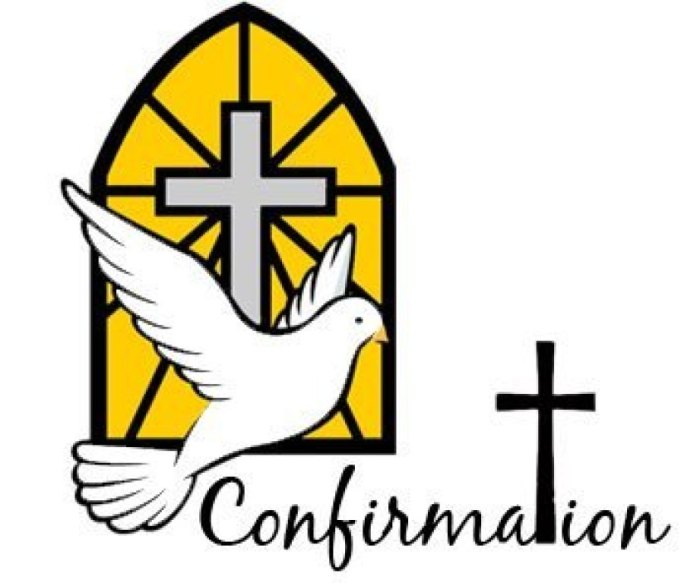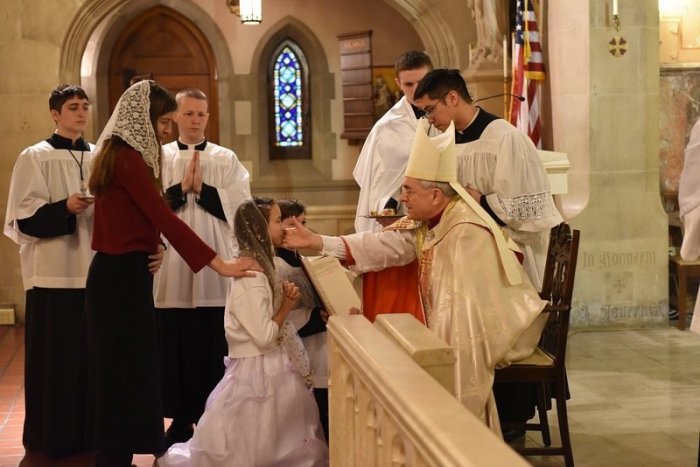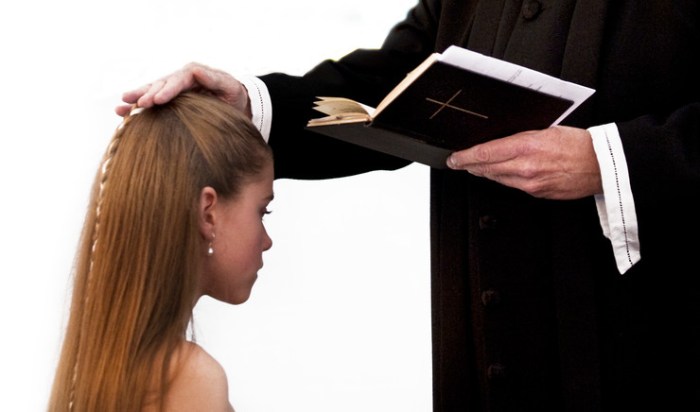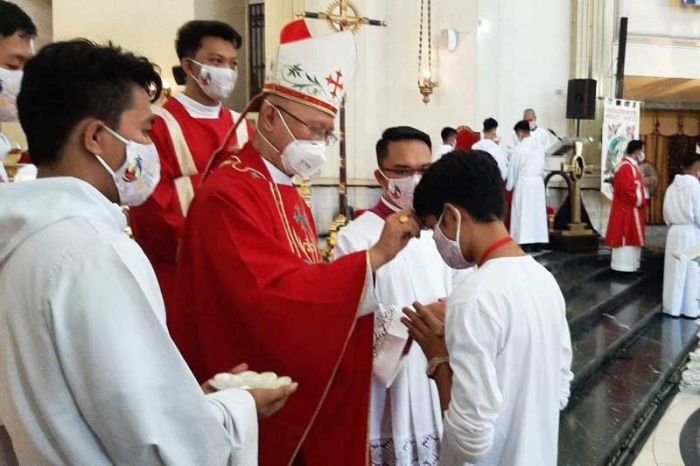Confirmation Rites in the Catholic Church hold profound significance as a sacrament that empowers the faithful with the gifts of the Holy Spirit. Tracing its roots back to the early Church, this sacred rite marks a pivotal moment in a Catholic’s spiritual journey, strengthening their bond with Christ and the Church.
Throughout history and across diverse cultures, Confirmation has evolved in its practices and traditions. Yet, its core purpose remains unchanged: to deepen the recipient’s faith, seal their baptismal graces, and equip them for a life of Christian witness.
History of Confirmation in the Catholic Church: Confirmation Rites In The Catholic Church

Confirmation is a sacrament of the Catholic Church that completes the process of Christian initiation begun in Baptism. It is believed to have originated in the apostolic era, with the apostles laying hands on new converts to confer the Holy Spirit upon them.
In the early Church, Confirmation was often administered together with Baptism, but by the 3rd century, it had become a separate sacrament. The Council of Trent (1545-1563) reaffirmed the importance of Confirmation as a distinct sacrament and defined its purpose and effects.
Meaning and Purpose of Confirmation
Confirmation is a sacrament that seals the recipient with the Holy Spirit and strengthens their faith. It is believed to confer seven gifts of the Holy Spirit: wisdom, understanding, counsel, fortitude, knowledge, piety, and fear of the Lord.
Confirmation is also a sacrament of maturity, as it signifies the recipient’s full membership in the Catholic Church and their readiness to live out their baptismal promises.
Celebration of Confirmation
The typical order of service for Confirmation includes the following:
- Opening prayer
- Reading from Scripture
- Homily
- Renewal of baptismal promises
- Laying on of hands by the bishop
- Anointing with chrism
- Concluding prayer
The bishop is the ordinary minister of Confirmation, but in some cases, a priest may be delegated to administer the sacrament.
Preparation for Confirmation, Confirmation rites in the catholic church
Preparation for Confirmation typically includes a period of instruction and reflection. The candidate is expected to understand the meaning and purpose of the sacrament and to be committed to living out their baptismal promises.
The candidate’s parents and sponsors also play an important role in their preparation for Confirmation. They are responsible for providing support and guidance and for helping the candidate to deepen their faith.
Confirmation in Different Cultures
Confirmation is celebrated in different ways in different cultures around the world. In some cultures, it is a simple ceremony, while in others it is a more elaborate celebration.
In some cultures, Confirmation is celebrated with a special Mass, while in others it is celebrated with a separate ceremony. The specific rituals and traditions associated with Confirmation vary from culture to culture.
Pastoral Care for Confirmed Catholics
The Church has a responsibility to provide pastoral care for confirmed Catholics. This includes providing ongoing formation and support, as well as opportunities for them to participate in the life of the Church.
There are a variety of programs and resources available to help confirmed Catholics deepen their faith and live out their baptismal calling.
Answers to Common Questions
What is the significance of Confirmation in the Catholic Church?
Confirmation is a sacrament that strengthens the baptized with the gifts of the Holy Spirit, deepening their faith and empowering them for Christian witness.
Who can receive Confirmation?
Typically, baptized Catholics who have reached the age of reason (around 7-8 years old) are eligible to receive Confirmation.
What are the effects of Confirmation?
Confirmation imprints an indelible spiritual mark on the recipient, strengthening their faith, deepening their connection to the Church, and empowering them with the gifts of the Holy Spirit.
How is Confirmation celebrated?
Confirmation is typically celebrated through a liturgical ceremony led by a bishop or priest. The bishop or priest anoints the candidates with chrism, a consecrated oil, while invoking the Holy Spirit.
What is the role of the Holy Spirit in Confirmation?
The Holy Spirit is the primary agent in Confirmation. Through the anointing with chrism, the Holy Spirit descends upon the candidates, empowering them with His gifts and graces.


